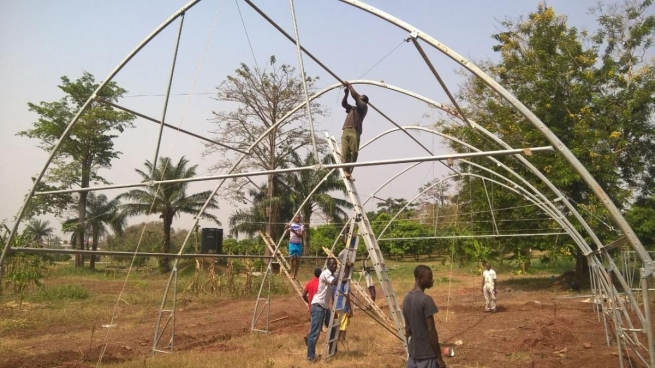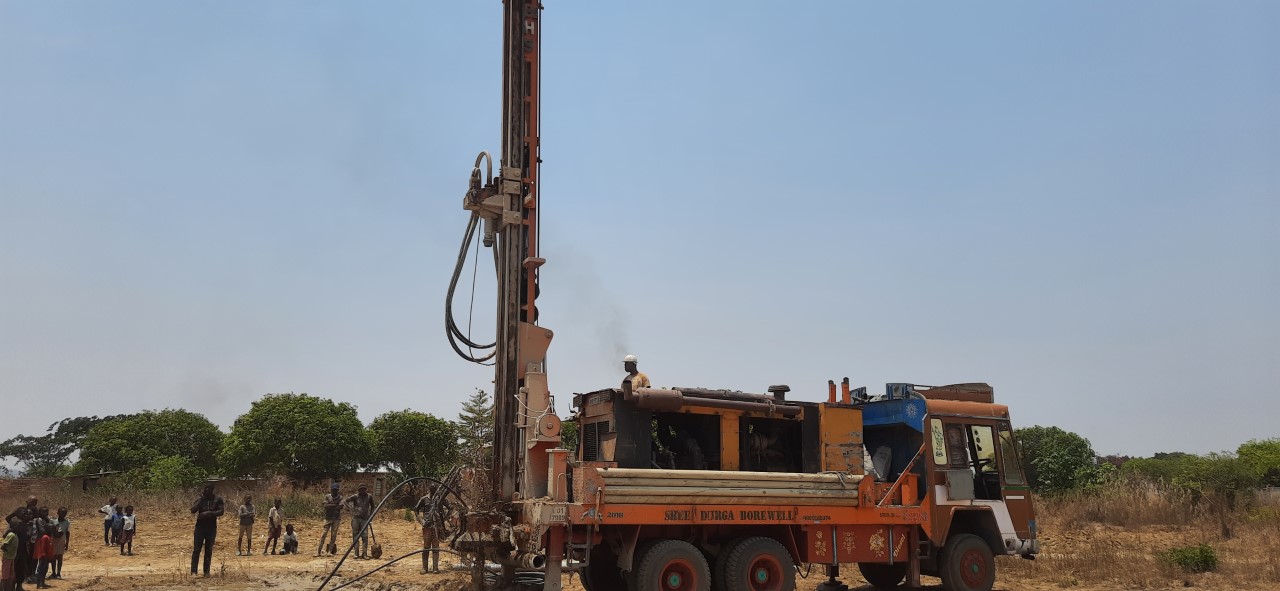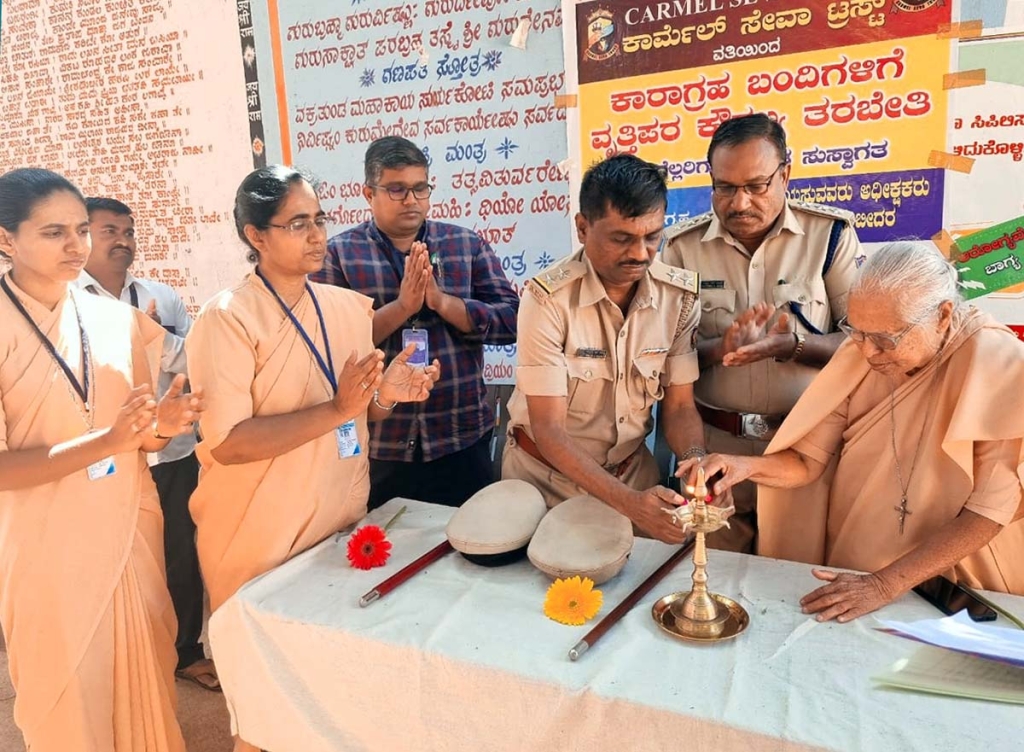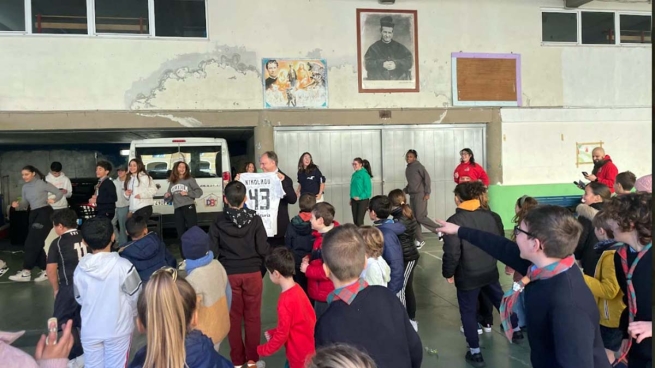GHANA: Salesian missionaries and VIS volunteers offer eco-sustainable agriculture vocational education to ease migration and keep youth safe from trafficking

(MissionNewswire) The Salesian-run International Volunteer Service for Development (VIS) provides services to youth in developing countries around the globe. Part of the organization’s work is to assist youth at risk of exploitation, particularly those at risk of trafficking. The International Labour Organization estimates that there are 40.3 million victims of human trafficking globally with 81 percent of them trapped in forced labor and 75 percent being women and girls.
In Ghana, Salesian missionaries in collaboration with VIS volunteers, have created a Stop Human Trafficking campaign which brings awareness about trafficking and works to provide local education and workforce development to help youth remain in their own communities instead of migrating. Migrating to foreign lands in search of work and better opportunities is when youth are most at risk of trafficking.
Thanks to vocational training courses in eco-sustainable agriculture in Ghana, many young people now have the opportunity to learn a trade, create employment and at the same time combat trafficking.
“I migrated the first time at the end of 2013. We left by car from Accra and arrived in Agadez, Niger. From there we reached Saba in Libya where they kidnapped me for a month. They only released me when my family paid the ransom. Once free, I continued my trip to Tripoli,” explains Ofori Gyase Hendrus, a 33-year-old Ghanaian.
Ofori spent four years in Libya before returning home to Ghana due to health problems which took six months of hospital care to heal. Since then, he has found a new opportunity at the vocational training program in eco-sustainable agriculture in his home country.
“The principle cause of irregular immigration for us young people in Ghana is the lack of employment,” says 30-year-old Badu Christiana. “I thought I would migrate too. We do it because we are looking for a better life. However, once we have learned a profession that allows us to live with dignity, the desire to leave disappears. Earning money here is the best way to prevent migration.”
Salesian missionaries operate four centers across the country that serve poor youth who are at risk of child labor and human trafficking. There are two centers in the urban area of Accra in addition to centers in Sunyani, the first place Salesian missionaries launched programs more than 25 years ago, and a new center in Tatale.
While Ghana’s economy continues to improve, nearly 45 percent of the population lives on less than $1 a day, according to UNICEF. Ghana ranks 139 out of 188 countries on the United Nations Development Program’s 2017 Human Development Index. Rural poverty remains widespread in the dry savannah region that covers roughly two thirds of Ghana’s northern territory.
Small-scale farms suffer from a lack of infrastructure and equipment, both of which are needed to shift from subsistence farming to more modern commercial farming. Modern methods would yield greater incomes and a chance to escape poverty.
Special Salesian programs are bridging cultural differences between Christians and Muslims and the gender inequities between boys and girls. Efforts are also underway to reduce class sizes which are typically 100 students for every teacher.
###
Sources:
ANS Photo (usage permissions and guidelines must be requested from ANS)
ANS – Ghana – “If we have something with which to live here, nobody will want to leave”
UNICEF – Ghana




